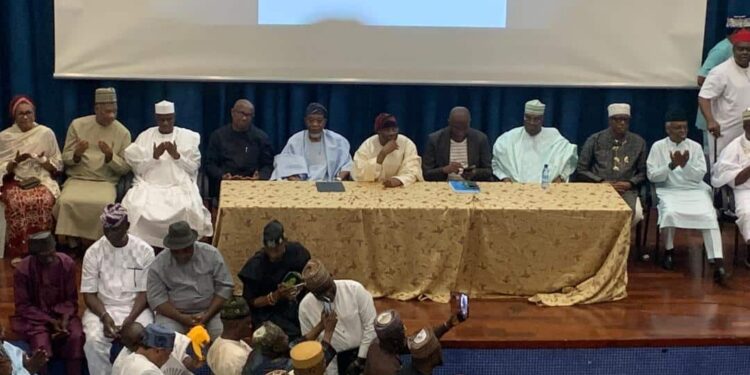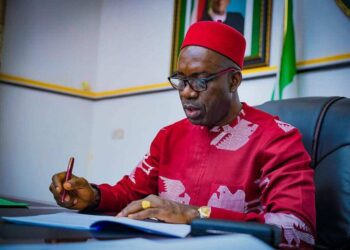Leading opposition politicians from across Nigeria’s major political parties gathered in Abuja on Wednesday to formally launch a coalition aimed at unseating President Bola Ahmed Tinubu in the 2027 general elections, selecting the African Democratic Congress as their unified platform.
The high-profile event at the Shehu Musa Yar’Adua Centre brought together former presidential contenders, ex-governors, and veteran politicians in what represents one of the most significant political realignments in recent Nigerian history. The coalition’s formation signals a coordinated effort to present a unified front against the ruling All Progressives Congress after years of fragmented opposition.
Peter Obi, who garnered significant support as the Labour Party’s 2023 presidential candidate, attended alongside his former running mate Datti Baba-Ahmed and Peoples Democratic Party’s 2023 standard bearer Atiku Abubakar. Their joint appearance suggests a willingness to set aside past rivalries in pursuit of electoral victory.
The gathering also featured several high-profile defectors from the ruling party, including former Attorney-General Abubakar Malami and ex-APC National Chairman John Odigie-Oyegun. This cross-party participation demonstrates the coalition’s ability to attract figures from various political backgrounds.
Former governors played a prominent role in the unveiling, with Aminu Tambuwal of Sokoto, Nasir El-Rufai of Kaduna, Rotimi Amaechi of Rivers, Jibrilla Bindow of Adamawa, and Emeka Ihedioha of Imo all present. Their involvement brings substantial political experience and regional influence to the movement.
Current lawmakers including FCT Senator Ireti Kingibe and Anambra Central Representative Victor Umeh also participated, indicating the coalition has support within the National Assembly.
The opposition alliance has appointed former Senate President David Mark as chairman and ex-Osun State Governor Rauf Aregbesola as secretary. Both veterans possess extensive political networks and are expected to provide strategic direction for the movement’s activities leading up to the elections.
Mark’s appointment is particularly significant given his long tenure as Senate President and his reputation as a bridge-builder across party lines. Aregbesola brings experience from his time as governor and his previous role in the APC leadership structure.
The coalition’s emergence comes amid widespread public frustration with the current administration’s management of Nigeria’s economic challenges, persistent security issues, and ongoing governance reforms. Rising inflation, unemployment, and living costs have created fertile ground for opposition messaging.
Political analysts suggest the coalition’s success will depend on its ability to maintain unity among diverse personalities and interests while presenting credible policy alternatives to voters. Previous attempts at opposition coalitions have often foundered on internal disagreements and personal ambitions.
The ADC, originally founded in 2017, provides the legal framework for the coalition’s activities. The party previously participated in the 2019 and 2023 elections but with limited success, making this high-profile adoption a significant boost to its profile.
Neither the Presidency nor the APC leadership has issued official statements regarding the coalition’s launch, though government supporters are likely monitoring developments closely as the political landscape shifts ahead of the next electoral cycle.
The coalition faces the challenge of translating Wednesday’s show of unity into concrete electoral success, requiring effective grassroots organization, policy development, and candidate selection processes across Nigeria’s 36 states and Federal Capital Territory.
With over two years remaining before the 2027 elections, the opposition alliance will need to sustain momentum while navigating the complexities of Nigerian politics, where regional, ethnic, and religious considerations often influence voter behavior alongside policy preferences.




















